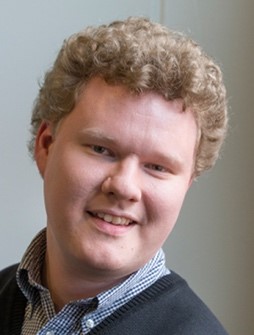The ACC 2025 symposium is preceded by 3 parallel tutorials:
- Numerical Optimal Control for Vehicles (full day)
- SymAware, Situational Awareness in Multi-Agent Automotive Systems (half day)
- Advances in Design and Real-World Implementation of Automotive AI-Powered Control Technologies (half day)
Participating in these pre-symposium tutorials provides a unique opportunity to gain insights from international and industry experts, learn from practical and real-world case studies, and stay updated on the latest automotive technologies. This is an excellent chance to enhance your skills, connect with professionals, and advance your career.
These tutorials will be held on Sunday 15 June on the campus of the Eindhoven University of Technology. More information on these tutorials can be found below. This is walking distance from the conference venue. Please note that the tutorials are subject to cancellation in case of lack of registrants and allow a maximum number of participants. Registration is mandatory and can be done here.
More information on these tutorials can be found below.
Tutorial 1: Numerical Optimal Control for Vehicles
This full-day tutorial (9:00-17:00) is an introduction to using numerical optimal control to study vehicular control. The basics of numerical optimal control are presented with the perspective of how to use it. Simple examples are studied in a first hands-on interactive session using the available software CasADi. Models, methods, and results in optimal vehicle maneuvers are then presented. In the second hands-on interactive session such problems are studied. Alternatively, in this session you may formulate, discuss, and perhaps even solve a problem from your own research around vehicles. The overall goal of the tutorial is to illustrate numerical optimal control and add it as a useful engineering tool for the course participants.
More information can be found here.

Lars Nielsen, Linköping University, Sweden
Since 1992 he is professor of Vehicular Systems holding the Sten Gustafsson chair at Linköping University. His main research interests are automotive modeling and control, and autonomous driving.

Björn Olofsson, Lund University, Sweden
His research interests include motion control for robots and vehicles, with particular focus on methods based on optimal control and optimization. He has been working with numerical optimal control for 15 years.
Tutorial 2: SymAware, Situational Awareness in multi-agent automotive systems
This half-day tutorial (12:00-17:00, starting with a lunch) will present the innovative software frameworks developed for situational awareness in multi-agent systems, particularly in automotive applications. These innovative software frameworks have been developed as part of the HE project SymAware (HORIZON-EIC-2021- PATHFINDERCHALLENGES-01). We will showcase this on a scaled vehicle in the loop setup. This interactive tutorial aims to engage participants with demonstrations of our computational tools, highlight the integration of symbolic reasoning for situational awareness, and discuss the broader implications of risk and ethical considerations in autonomous systems.
Through demonstrations and discussions, attendees will gain insights into the methodologies for enabling autonomous agents to make informed, risk-aware decisions in dynamic environments. The tutorial will provide an open forum for academics, industry professionals, and policymakers to explore the challenges and opportunities in advancing situational awareness technologies.

Mohsen Alirezaei, Siemens Industry Software and Eindhoven University of Technology, Netherlands.
Fellow Scientist Automated Driving at Siemens Industry Software and Services B.V and part-time assistant professor at Eindhoven University of Technology. His research focuses on the verification and validation of automated and cooperative automated driving systems, as well as advanced driver assistance systems.

Sofie Haesaert, Eindhoven University of Technology, Netherlands
Assistant Professor in the Control Systems group of the Department of Electrical Engineering at Eindhoven University of Technology. Her research interests lie in the development of verification and control synthesis methods for cyber-physical systems.
Tutorial 3: Advances in Design and Real-World Implementation of Automotive AI-Powered Control Technologies
This half-day tutorial (12:00-17:00, starting with a lunch) on AI applications in the automotive domain aims to discuss the latest developments in machine learning (ML)-based concepts for automotive vehicle systems. This event is designed for PhD and MSc students, as well as professionals with a basic background in automotive control. The tutorial will feature a mix of speakers from both the automotive industry and academia (Volvo, Denso, Univ. of Alberta, Ohio State Univ. and RWTH Aachen), who will provide high-quality presentations on various topics and participate in a concluding panel discussion. The goal is to create an inspiring platform that brings together automotive experts from relevant disciplines, fostering new collaborations and directing future research. Details about the program and our speakers can be found here
Key topics to be discussed include:
- New ML-based automotive vehicle applications
- Performance benefits of these applications
- Implementation challenges in real-world scenarios
Machine learning is considered a disruptive technology due to its success in solving complex problems and the increasing availability of data. In the automotive sector, there are limited studies on ML-based methods for powertrain and vehicle applications. These methods have the potential to significantly reduce development time and costs, enhance safety, and reduce energy consumption and emissions. Despite the promise of ML in the automotive sector, the field is still emerging, and there are few studies that include actual on-road implementations. The tutorial aims to address this gap by demonstrating the potential, limitations, and challenges of these promising ML methods.

Mahdi Shahbakhti, University of Alberta, Canada
Professor of Mechanical Engineering at the University of Alberta and an Adjunct Professor of Mechanical Engineering at Michigan Technological University. His research centers on modeling and control of dynamic systems including automotive systems, building energy systems, alternative and renewable energy systems.

Frank Willems, Eindhoven University of Technology, Netherlands
Professor of Systems and Control Technology and Chair of Integrated Powertrain Control at Eindhoven University of Technology (TU/e), a position, realized with support from TNO. His main research interests are control-oriented modeling of internal combustion engines and after-treatment systems, cylinder pressure-based combustion control, and integrated energy and emission management.

